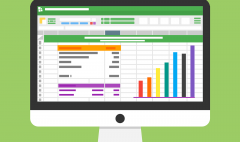Accounting Grade 11 SBA Tasks and Memos
16 April 2021 2022-06-08 10:19Accounting Grade 11 SBA Tasks and Memos
Accounting Grade 11 SBA Tasks and Memos
This page contains the latest Accounting Grade 11 SBA Tasks and Memos. Content on this page will help you in your exams, tests, sba, assignments, and research tasks. Accounting focuses on measuring performance, and processing and communicating financial information about economic sectors. This discipline ensures that principles such as ethical behaviour, transparency and accountability are adhered to. It deals with the logical, systematic and accurate selection and recording of financial information and transactions, as well as the compilation, analysis, interpretation and communication of financial statements and managerial reports for use by interested parties.
The subject encompasses accounting knowledge, skills and values that focus on the financial accounting, managerial accounting and auditing fields. These fields cover a broad spectrum of accounting concepts and skills to prepare learners for a variety of career opportunities.
Accounting Grade 11 is completed in 4 terms in a year: Term 1, Term 2, Term 3, and Term 4. It is done in all South African Provinces such as: Gauteng, Free State, Limpopo, North West, Mpumalanga, Western Cape, Northern Cape, Eastern Cape, and Kwazulu Natal. Accounting Grade 11 is done in English and Afrikaans languages, and consist of Paper 1 and Paper 2 Exams
Topics in the Accounting CAPS curriculum.
The following are the topics covered in Accounting Grade 11 which will guide you before exploring SBA Tasks and Memos.
- Accounting concepts
- GAAP principles
- Bookkeeping
- Accounting equation
- Final accounts and financial statements
- Salaries and wages
- Value-Added Tax
- Reconciliations
- Cost accounting
- Budgeting
- Indigenous bookkeeping systems
- Fixed assets
- Inventory
- Ethics
- Internal control
List of Accounting Grade 11 SBA Tasks and Memos
PRESCRIBED ASSESSMENT CRITERIA AS PER CAPS INCLUDING PRACTICAL COMPONENTS / PATS
TERM 1
Task 1: Written report: 50 marks
Weighting = 10
Task 2: Controlled test 1: 100 marks
Weighting = 20
TERM 2
Task 3: Project: 50 marks
Weighting = 20
Task 4: Mid-year exams: 200 marks
Paper 1: 150 marks
Paper 2: 150 marks
Total: 300 marks
Weighting = 20
TERM 3
Task 5: Case Study: 50 marks
Weighting = 10
Task 6: Control Test 2: 100 marks
Weighting = 20
TERM 4
Task 7: Year-end exam
Paper 1: 150 marks
Paper 2: 150 marks
TOTAL: 300 marks
REVISED ASSESSMENT CRITERIA FOR 2020
TERM 1
Task 1: Written report: 50 marks
Suggested weighting = 10
Task 2: Controlled test 1: 100 marks
Suggested weighting = 20
TERM 2
Task 3: Assignment (100)
Suggested weighting = 20
Task 4: NO Mid-year exams (-1
TERM 3
Task 5: Case Study: 100 marks
Suggested weighting = 10
Task 6: NO Controlled test 2 (-1)
TERM 4
Task 7: Year-end Exam
Paper 1: 150 marks
Paper 2: 150 marks
TOTAL: 300 marks
2021 Annual Teaching Plan: Accounting Grade 11
What is the purpose for Accounting Grade 11?
The reasons for learning Accounting Grade 11 in South Africa are the following:
- record, analyse and interpret financial and other relevant data in order to make informed decisions;
- present and/or communicate financial information effectively by using generally accepted accounting practice in line with current developments and legislation;
- develop and demonstrate an understanding of fundamental accounting concepts;
- relate skills, knowledge and values to real-world situations in order to ensure the balance between theory and practice, to enter the world of work and/or to move to higher education, and to encourage self-development;
- organise and manage own finances and activities responsibly and effectively;
- apply principles to solve problems in a judicious and systematic manner in familiar and unfamiliar situations, thus developing the ability to identify and solve problems in the context of the various fields of Accounting;
- develop critical, logical, and analytical abilities and thought processes to enable learners to apply skills to current and new situations;
- develop the following characteristics:
– ethical behaviour
– sound judgement
– thoroughness
– orderliness
– accuracy
– neatness; - deal confidently with the demands of an accounting occupation manually and/or electronically.
Browse Accounting Courses to study after Matric in South Africa
Do you know that there are plenty of accounting Courses that you can study after you matric grade 12 in South Africa?





